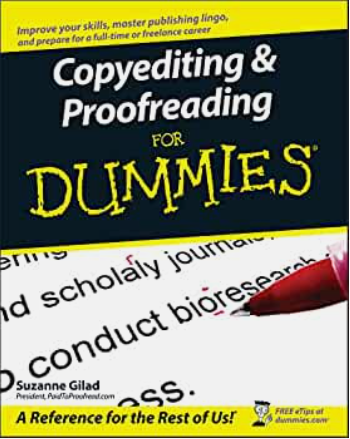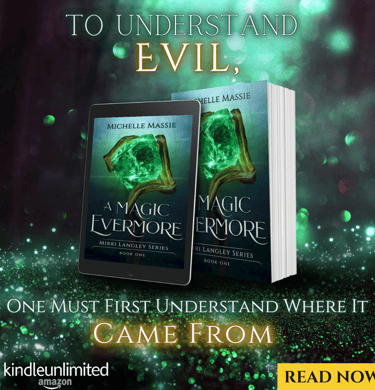Self-Editing Tips and Tricks
Blog post description.
Though I am a HUGE fan of editors and proofreaders, I totally get that some people don’t have an extra grand or few to shell out on things like that when writing a novel. I have SOO been in that boat! Here are some of the most common errors writers make, and here are the ways to fix them!
First and Foremost-PASSIVE VOICE
I put this one first because I struggled with this. It made no sense to me. But thanks to some articles from ProWritingAid, I was able to figure out the right way to eliminate unnecessary passive voice.
Passive voice is when the subject of a sentence is acted upon instead of acting itself.
Huh? I don’t know about you, but when I first read that, it made absolutely zero sense to me. After some research, and many, many examples, I’ve figured it out!
The ball was thrown.
The ball is the subject of the sentence. And it is not doing anything. It is passive.
Instead of passive voice, we should aim for active voice. What the heck is active voice?
Active voice is when the subject is doing the acting.
In other words, make the subject more active! What could the ball be doing?
Someone threw the ball through the air.
Now the ball isn’t just sitting there. It is active.
This is a simple example. It can get a bit more complicated, dealing with the subject/verb agreement. I’ll admit, I’m no expert on the more complicated pieces of passive voice grammar. But I have a few tips.
Checking your work to see if you are using the word ‘was’ a lot is a good indicator of passive writing. Of course, this does not always mean you are writing in a passive voice. Or maybe you want to have a passive voice in that instance.
I found a great test that you can use in your writing to see if you are using passive voice too often. I am officially going to name it The Elf Test. (I use elves a lot in writing.)
Take a sentence you think might be passive. Add the phrase ‘by the elves’ after the verb in the sentence. Does it make sense? If yes, then you are most likely writing in a passive voice and can alter it.
Example-The ball was thrown.
Now the Elf test. The ball was thrown by the elves. Makes sense, doesn’t it? Passive.
Another example-Jim threw the ball.
Now the Elf Test. Jim threw by the elves the ball. Make sense? Nope, not at all! Active tense!
For more on Passive tense, this article helped me a lot. https://prowritingaid.com/Passive-Voice
2. Confusing Tense
A common place to find errors in tense is around dialogue that is in the opposite tense of the actual dialogue.
Example: I stumbled to the ground and grabbed her shirt. “Get up,” I yell as her head lolls to the side.
In this sentence, ‘stumbled’ and ‘grabbed’ are past tense. ‘Yell’ and ‘lolls’ are in the present tense.
Here are some of the most common errors for confusing present and past tense.
may/might
Be sure to use may for present tense, and might for past tense.
I may have to throw the ball a little harder.
I might have thrown the ball a little too hard.
Can/could
Use can for present tense, and could for the past tense.
Michelle can tell when someone is lying to her.
Michelle could tell when someone was lying to her.
Shined/shone
Use shined when you want to express cleaning a mirror or an object.
He shined the mirror.
Use shone when there is no direct object, and the verb is intransitive.
The sun shone brightly all day.
But . . . There are always exceptions. What about this sentence?
Amy shone in the school musical.
Following the “rules,” this sentence is technically correct. But does it sound right? Maybe not. Does 'shined' sound better? This is one of those gray areas, and a good reason to have a second opinion. Does it flow well? Is it easy to read? All important questions. Rules work when they work, I guess!
Set/sit
The word ‘set’ is used when you are referring to putting something down.
She set the cup on the table.
The word ‘sit’ is used when you plop down in a chair. You, a human or an animal, that actually sits or lies.
She likes to sit in the poofy chair.
(Similar to lay and lie! Lay something down, and a person lies down.)
These are just a few examples. I could fill up pages with verbs that are often confused. But you get the idea!
3. Spelling Errors
Ever read a text from someone and it drove you absolutely nuts when they used the wrong form of something? Like, “Your the coolest!” Those ‘Your vs You’re’ boo-boos drive me nuts! (One of my pet peeves.) Here are some more common words to watch for!
Their/they’re/there
‘Their’ is a possessive pronoun.
Can you tell me who their designer is?
‘They’re’ is a contraction of they + are.
They’re so cute!
'There' is an adverb, usually referring to a location.
Set it down over there.
Its/It’s
‘Its’ is a possessive pronoun.
Where is its leash?
‘It’s’ is a contraction. It+is.
It’s my favorite!
Than/then
‘Than’ is a preposition used for comparison or contrast.
She is shorter than her brother.
‘Then’ is an adverb, often dealing with time.
She was sick, but then felt better.
Your/You’re-grrr
‘Your’ is a possessive pronoun.
He is your best friend.
‘You’re’ is a contraction. You+are.
You’re the best at checkers.
Again, just a taste of the most common spelling errors!
4. Vague Pronouns
When writing sentences with multiple nouns that use the same pronoun, it’s super easy to mix up a reader.
Amy and Julie ate at the restaurant, but she got sick after.
Who got sick? Amy or Julie? Instead of using ‘she’, clear up the pronoun use.
5. Sentence Fragments
Watch out for incomplete sentences.
Incomplete: Miss Massie is a great author. For example, A Magic Evermore.
Complete: Miss Massie is a great author. For example, she has written A Magic Evermore.
6. Faulty parallelism
Be sure you are using grammatically correct sentences when expressing two or more matching ideas or items in a series.
Incorrect: Together, they came up with ideas for lighting the stage, setting the props, and theater.
Correct: Together, they came up with ideas for lighting the stage, setting the props, and ideas for improving the theater.
7. Words easily confused
I’m totally guilty of this one. My editor pointed out that I used the word ‘propelling’ instead of the correct word ‘rappelling’ in my book. Propelling down a brick wall is super weird, and I am so glad she caught that! Keep your dictionary app open for any questions!
Affect/effect
‘Affect’ is most commonly used as a verb.
Covid affected our town negatively.
‘Effect’ is usually a noun.
The effect Covid had on the town was devastating.
Among/between
‘Among’ expresses a collective relationship among several items.
He found the letter among the papers on the desk.
‘Between’ expresses the relationship of one thing to another or too many other things.
The paper was between two books.
Farther/further
‘Farther’ refers to physical distance.
She can run farther than him.
‘Further’ refers to metaphorical distance.
She is further ahead in her studies than him.
Now, the best way I have found to find errors in my work is to read it out loud. That's right.
EVERY. SINGLE. WORD.
It is the only way I can catch those quirky little errors that you would never see.
Next, I want you to read it backward. Try paragraph by paragraph. I had read my novel so many times I could recite it. Reading it backward helped break it up a bit.
That should do it for now! Some common errors to keep an eye out for and some tricks on how to find them! Hopefully, this helps a bit if you are one who is trying to self-edit. (Which, technically, we all should be trying!) Good luck!
Happy Writing!
Michelle
Related articles:


A MUST for any writer, proofreader, or editor! Click HERE!
Check out my FREE Self-Editing guide! Keep it handy when preparing drafts!
Get your FREE Self-Editing Guide Here!
Like my stuff? Follow Me!




